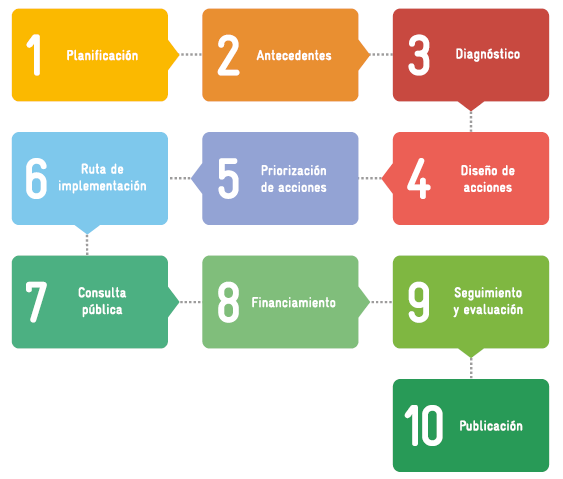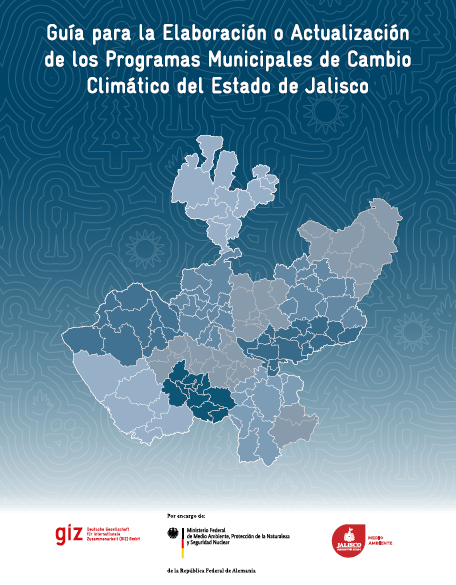The Nationally Determined Contributions (NDCs) must materialize as actions at the local level. In order for municipalities to adapt to and mitigate their greenhouse gas (GHG) emissions, they need to develop and implement their own climate policies according to their needs and contexts.
At the municipal level, a clear mandate and alignment with State and Federal policy is essential to accelerate coordinated climate action and achieve compliance with Mexico’s NDC. In this context, the Ministry of the Environment and Territorial Development (SEMADET) published the “Guide for the Elaboration or Updating of the State of Jalisco’s Municipal Climate Change Programs” to strengthen the technical and institutional capacities of municipalities and guide the standardized development of climate change programs at the local level.
In Mexico, the State of Jalisco has been a pioneer in the development of legal instruments, institutional arrangements and climate change coordination mechanisms in its 125 municipalities. In 2015, the State promulgated its State Law on Climate Change and established, under its legal framework, that all municipalities must prepare, approve and publish their Municipal Climate Change Programs (PMCCs) before August 2019. In this way, this guide was designed from the learning of previous exercises and based on current methodologies, and is aligned with the State policy of Jalisco to support the development of different local planning instruments.
The development of this product was supported by the Deutsche Gesellschaft für Internationale Zusammenarbeit (GIZ) GmbH through the Vertically Integrated Climate Policies (VICLIM) project and forms part of the International Climate Initiative (IKI) of Germany’s Federal Ministry for the Environment, Nature Conservation and Nuclear Safety (BMU).
Guide for the Elaboration or Updating of Municipal Climate Change Programs
The Guide describes the 10 different stages that make up the PMCC development process. Each stage is supported by various annexes that facilitate the preparation of the GHG inventory, a vulnerability analysis, the design and prioritization of measures, among others. The main objective of this instrument is for the municipality to have a portfolio of prioritized and feasible projects that can be implemented to mitigate GHGs and reduce vulnerability to climate change effects. Both the Guide and its annexes are available on the SEMADET website here.

Preparation of the Climate Change Program in the Municipality of Puerto Vallarta
During the first half of 2019, GIZ will support the Municipality of Puerto Vallarta in the development of its PMCC. Tourism is the most prominent economic activity in Puerto Vallarta; as a result, emissions and pressure on social and ecosystem systems is greater than in other municipalities, which increases climate vulnerability. This exercise will have a practical use-case methodology that allows for the identification of lessons learned that are transferable to other municipalities within Jalisco and to other States, as well as for opportunities to improve the methodology.
For the development of this work, a close collaboration is imagined between the projects VICLIM and ADAPTUR (Ecosystem-based Adaptation to Climate Change with the Tourism Sector), the latter of which operates in the Riviera Nayarit-Jalisco in the Municipality of Puerto Vallarta.


